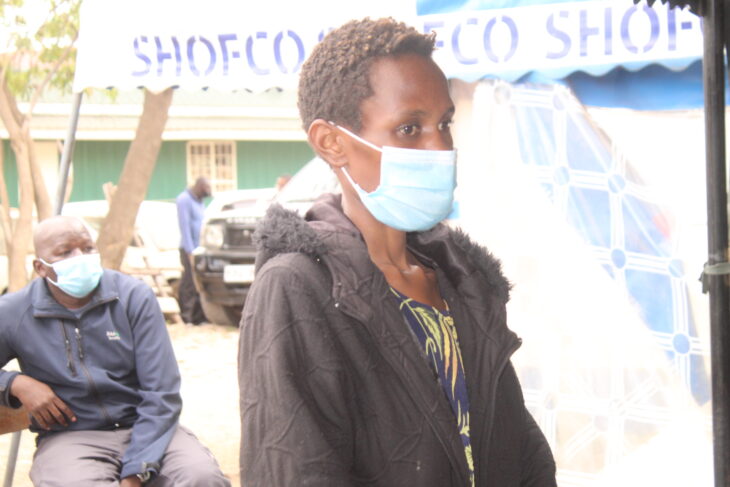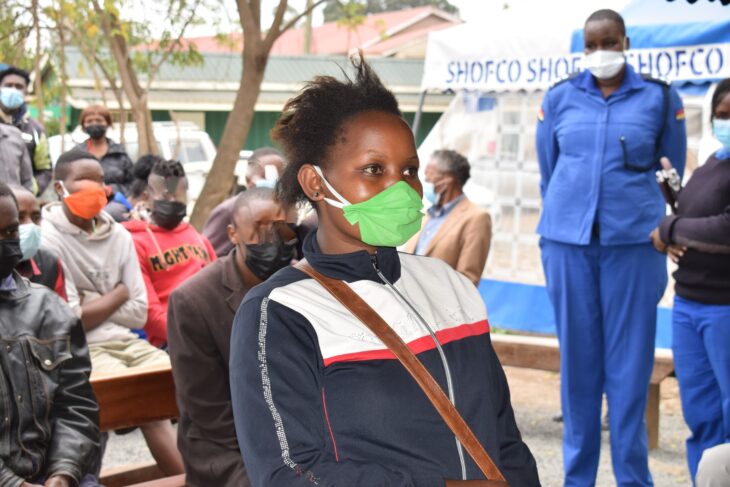NAIROBI, Kenya, Mar, 20- Kenya has recently witnessed a surge in gender-based violence cases, particularly killings, infliction of grievous injuries, and general assaults among intimate partners.
Gender-based violence among intimate partners has become rampant, affecting four out of 10 women in Kenya according to a 2014 survey report by the Kenya National Bureau of Statistics.
Some 11 women were killed by their partners in February 2019. The victims were killed by men they were in intimate relationships with or those they had been intimate with.
Many more have been killed since March 2020, when the COVID-19 pandemic struck Kenya leading to stringent preventive measures like dawn to dusk curfew. The pandemic led to a serious economic meltdown, massive job losses, and subsequently, mental health-related issues.
Civil society and researchers argue that this is a demanding human right, health, and developmental issue and have recommended that priority be given to remedy for women experiencing violence and preventive and penal measures for perpetrators.
Psychologist Peninah Ndonye of Makueni County Referral Hospital told Shahidi News that cases of GBV are not limited to people in intimate relationships.
She said the violence is also varied – physical, emotional, psychological and social-economic, that is, financial deprivation.
“We have seen women subjected to physical gender-based violence by their fathers, brothers or uncles and others subjected to social-economic violence by their fathers, brothers, husbands, brothers-in-law among others,” she said.
“For instance, when a woman is denied a share of her father’s or husband’s wealth or deprived of financial or economic gain of any form, she becomes a victim of social-economic violence. And many women have fallen victim to this where their husbands are for example preventing them from engaging in economic activity like employment or doing business. Others are deprived of their matrimonial property by in-laws.”
– Kitchen knife-
But men are also falling victims to gender-based violence and some are getting killed.
For instance, George Ogamo was killed on the night of September 11, 2021, allegedly by his wife Peninah Wanjiru Muchemi during a domestic fight in their rented house in Waithaka, Dagoretti Sub County in Nairobi. Ogamo was stabbed to death with a kitchen knife.
Muchemi was arrested the next day and handed over to the Directorate of Criminal Investigations (DCI) in Kabete.
The cause of their fight is only known to the two but Ogamo succumbed to injuries at their house.

In another incident, a woman who scolded her husband with boiling water in a domestic fight after he allegedly returned home with a female companion pleaded guilty to charges of causing him grievous bodily harm at a Kibera caught on August 16, 2021.
Pamela Mwendwa admitted causing the injuries to Sebastian Irukan, whom she is married to and has a child with, on July 23, 2021.
Mwendwa told principal magistrate Sharon Maroro that her husband had returned home with another woman and told her she had found the right one. That is what triggered her fury.
Irukan suffered injuries on the neck, shoulder, and parts of his abdomen.

–Murder, manslaughter, infanticide-
In another similar incident of domestic fight turning fatal, Ann Muronji was arrested on August 28 over the death of her three-month-old baby that was fatally injured as Muronji and her husband fought at their house.
Muronji and her husband could face charges of either murder, manslaughter, or infanticide at the end of the ongoing investigations.
The two had fought over infidelity because Muronji’s husband suspected the deceased infant was a ‘fraud child’. He had suspected his wife got pregnant for another man and was on a revenge mission.
And the suspicion caused the fight that led to the death of the child.
However, these are just a paltry of domestic incidents that happen daily even though not all lead to fatalities. Hundreds are never reported to the authorities.
A survey by International Centre for Research on Women in 2010 identified how economic and work stress can lead to gender-based violence through feelings of low self-esteem and inadequacy and the need to reassert dominance to preserve status among men.
Several studies have also identified the phenomenon of increased violence relating to female empowerment, where men are not engaged or assisted.
National Crime Research Centre (NCRC) Chief Executive Officer Gerard Wandera, poor parenting is a major contributing factor of GBV.
Speaking during the national state of crime conference on June 30, Wandera said home-based violence is projected to increase due to the situation of parents not raising their families guided by good values.
“The recently concluded study commissioned by the President to NCRC on protecting the family established that the parents in Kenya have largely accepted that the breakdown of family values is almost a blame of the way they are raising the family,” Wandera said.
A 2018 study by NCRC similarly found that violence against women in general, and domestic violence in particular, is intricately linked to real or perceived fulfillment of masculine identities amidst economic pressures.
Lawyer Lydia Abuya echoed Wandera’s sentiments. She blamed the rise of GBV on social breakdown and delays by courts to conclude and punish perpetrators of gender-based violence.
Abuya said the number of men raised by abusive fathers is on the rise and that means they are also likely to be violent to their spouses.
“Then we have men who did not have a father when growing up and did not have anyone to learn from, about being a man. They did not have anyone to teach them dispute resolution mechanisms or anyone to learn from,” she said.
“Our input on men is decreasing while our expectations on them are piling up. In fact, because of the void left by absent fathers, some boys learn things from violent movies and practice with their violent peers and grow up with such habits because they have never had anyone to help them decipher masculinity. These men cannot be expected to be devoid of violence when they grow up.”
Want to send us a story? Contact Shahidi News Tel: +254115512797 (Mobile & WhatsApp)


